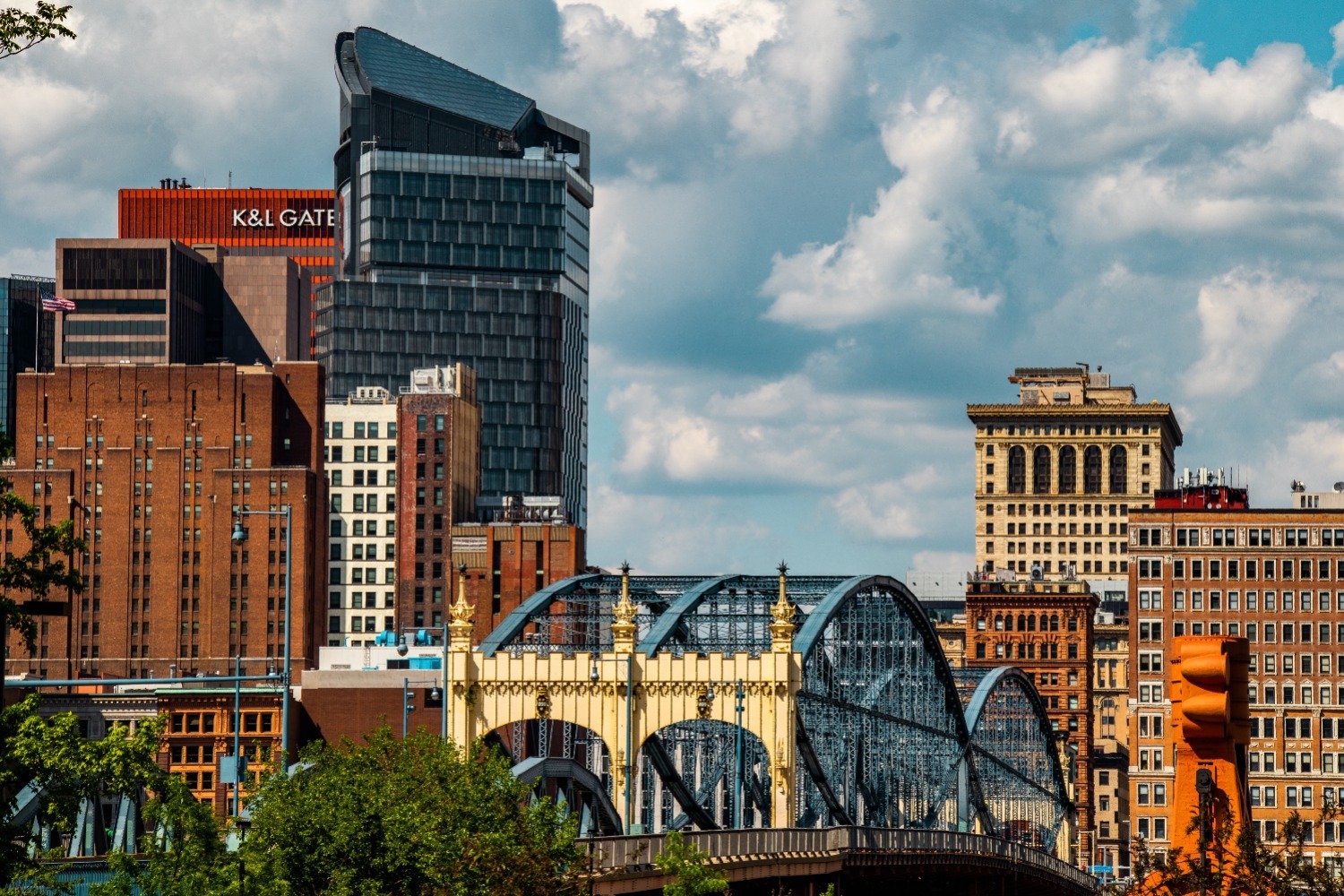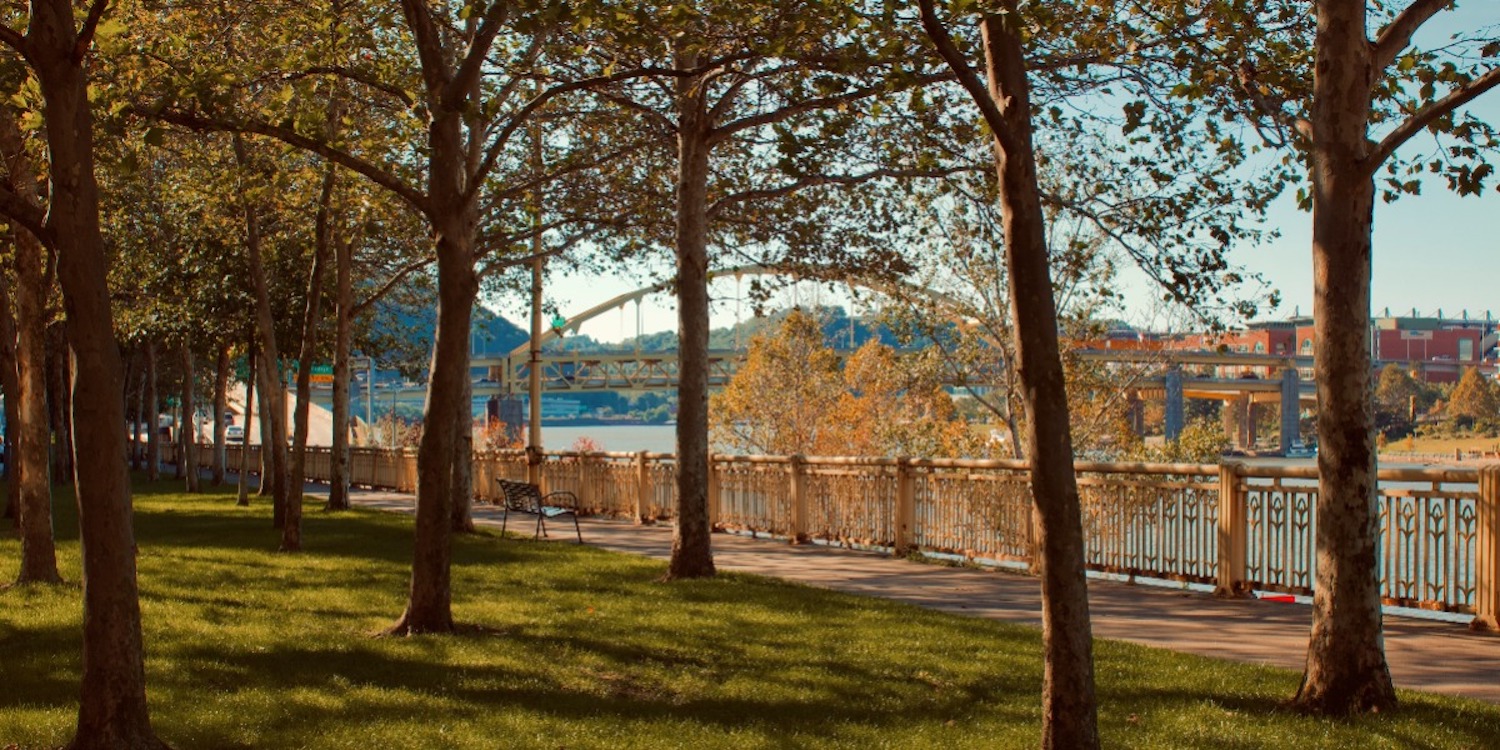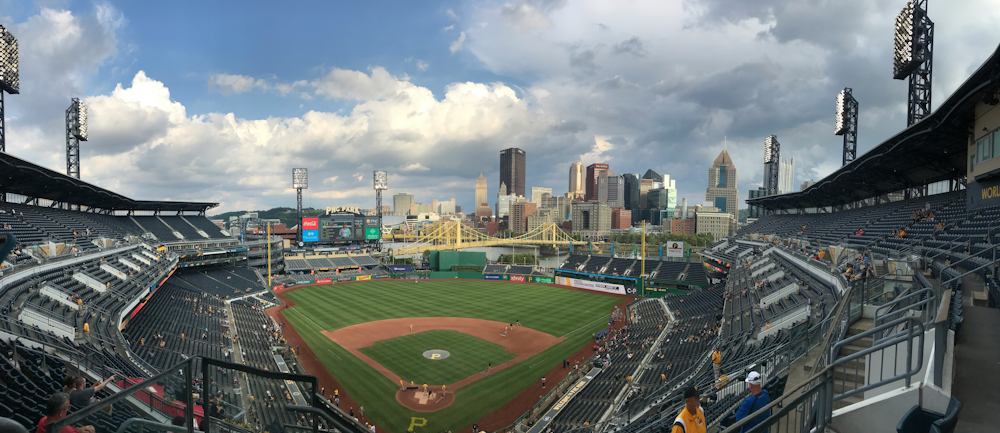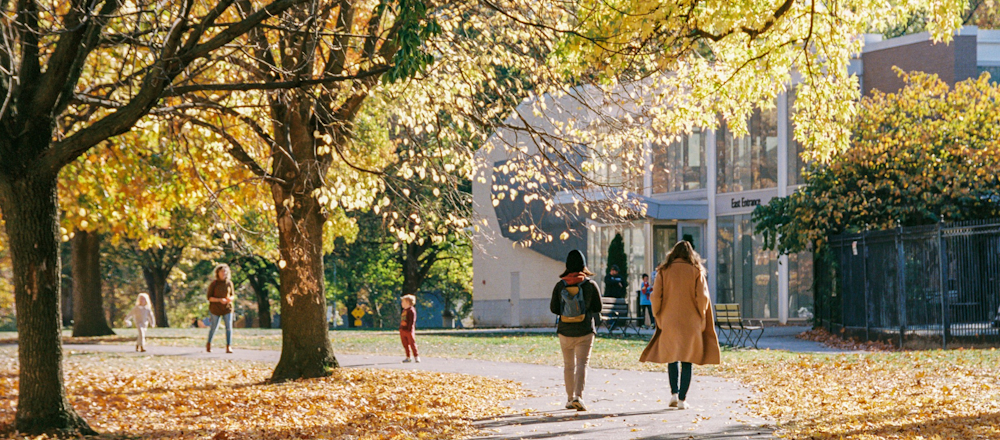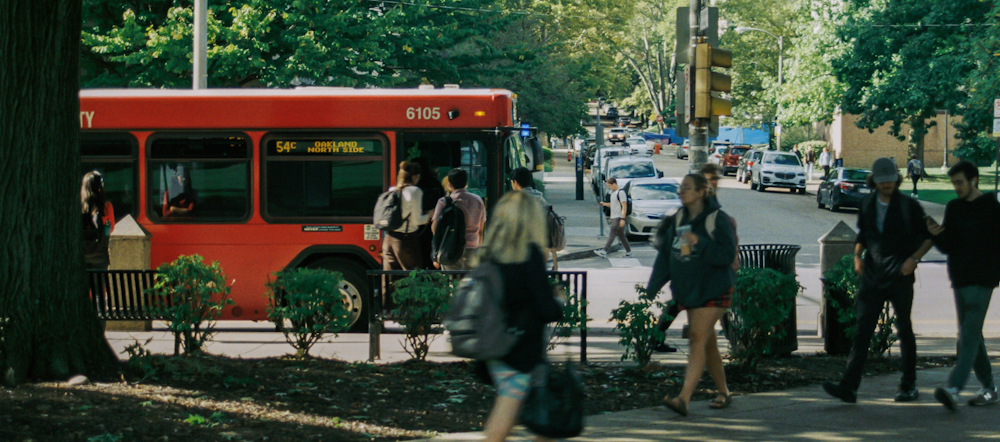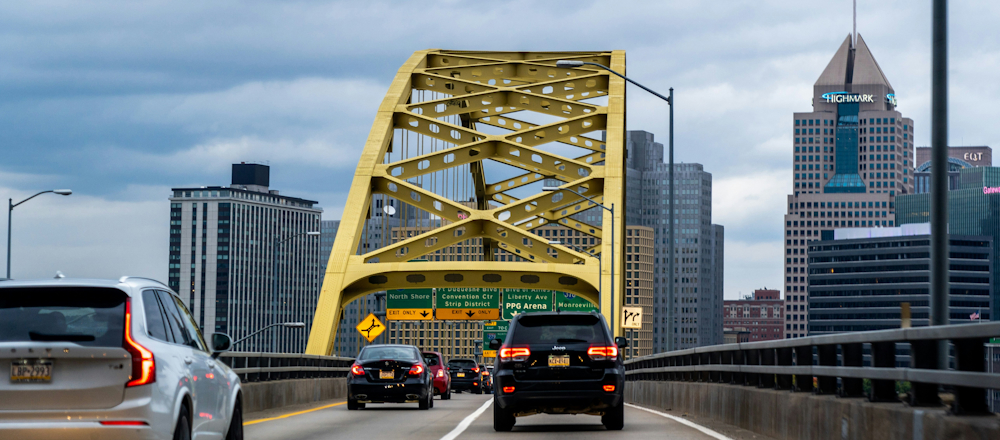Accommodation in Pittsburgh offers something to suit every taste and budget. Whether you’re searching for a family-friendly home in the suburbs or a studio apartment in the city centre, you’re bound to find something that fits your needs.
You’ll likely want to rent property at first to get to know the city and its neighbourhoods. Pittsburgh’s rental market is refreshingly affordable compared to other major US cities.
Neighbourhoods in Pittsburgh
Your choice of neighbourhood in Pittsburgh will be largely dependent on your priorities and preferences, as the city has something for every lifestyle and budget. For city living with easy access to universities and nightlife, areas like Bloomfield (‘Little Italy’) and the trendy Lawrenceville provide walkable communities with superb dining and entertainment options. Young professionals often gravitate toward Regent Square for its small-town feel within the city, and the Strip District attracts those seeking a hip, industrial aesthetic and a thriving startup culture.
Family-oriented accommodation seekers will find great options in Pittsburgh’s well-established suburbs, each offering distinct advantages. Mount Washington delivers stunning city views and extensive green spaces, and Squirrel Hill combines parkland with cultural diversity and top-rated schools.
Shadyside stands out as another professional favourite, offering upscale living with easy access to healthcare districts and universities. For those prioritising luxury and prestige, affluent areas like Edgeworth showcase beautiful Victorian architecture and highly rated educational facilities, and compact Aspinwall offers suburban charm with walkable amenities and transport links to the city centre.
Best and Worst Neighbourhoods in Pittsburgh
Types of accommodation in Pittsburgh
Pittsburgh is a fast-growing city, and housing styles here range from historic Victorian homes to sleek modern developments. Plenty of new developments are popping up, including luxury condos and apartments. Most of these are in the city centre. Further out, housing is usually more spacious and not as modern.
Apartments
Apartment living tends to be the most common close to the downtown area. Apartments are an ideal choice if you want to live close to the action in the city centre. Generally, apartment complexes in Pittsburgh are in good condition, with many new luxury developments popping up.
Condos
Condos are similar to apartments but with a wider range of communal facilities such as gardens, swimming pools, fitness centres and laundry facilities. Condo living is a great option for new arrivals, as these complexes have a noticeable sense of community, which is conducive to making friends.
Duplexes
Duplexes and fourplexes consist of either two or four living units attached to each other with shared walls or stacked one on the other. These are often found in neighbourhoods located close to the central areas.
Houses
You’ll be spoilt for choice when it comes to houses in Pittsburgh. You’ll need to move further away from the city centre for the best picks, but houses in Pittsburgh are generally spacious and offer good value for money. These mainly consist of ranch, American foursquare and row houses.
Finding accommodation in Pittsburgh

Finding accommodation in Pittsburgh generally starts with an internet search. Online property portals such as Zillow, Trulia, and Zumper can give you a good idea of what’s available at different price points in each area, along with information on what types of properties are the most common in each neighbourhood.
You’ll likely rent a property via a local real estate firm. Real estate agents typically have intimate knowledge of the local property market and will frequently have access to listings before they’re published, so you stand a good chance of finding your dream rental this way.
You can also rely on local neighbourhood social media groups to assist you in your house hunt. Facebook groups often yield great results, as locals are usually familiar with their city’s best areas and suburbs. Some expats will be lucky enough to have a relocation company working on their behalf, who will assess their preferences and shortlist properties for them to view.
Useful links
Renting accommodation in Pittsburgh

Once you’ve narrowed down your preferences in terms of the type of housing and suitable suburbs, finding a property shouldn’t prove too difficult.
Making an application
When you’ve found a property you’d like to rent, you’ll need to start by filing an application. Depending on the situation, you can either do this directly through the landlord or via the agent overseeing the property. As long as all the relevant checks and references are verified, a lease can be signed. You’ll benefit from having your US bank account and social security number set up, as this will speed up the whole rental process.
Leases
A standard rental contract in Pittsburgh is usually valid for a year, with the option to renew at the end of the initial term. Depending on where in the city they hope to live, it may also be possible for new arrivals to negotiate a shorter lease.
According to the state of Pennsylvania’s laws, you’ll need to give your landlord at least 15 days’ notice should you wish to terminate a 12-month or 6-month lease. At least 30 days’ notice is required for rental agreements that run for more than a year. Read the contract carefully and raise any concerns you may have with the landlord or agent before signing on the dotted line.
Short lets
Short lets in Pittsburgh are usually fully furnished with high-quality appliances and furniture that make for a comfortable stay as you acquaint yourself with your new city. Rental prices for short lets are typically higher than those for long-term rentals, but they frequently include cleaning and utility fees.
Deposits
According to the Pennsylvania landlord-tenant law, a landlord may charge you the equivalent of two months’ rent as a security deposit for the first year of renting and the equivalent of one month’s rent during all subsequent years of renting.
Some landlords may also require you to take out renter’s insurance.
Terminating the lease
Breaking a lease early in Pittsburgh typically requires you to provide proper notice as outlined in your rental agreement. Most landlords will expect you to continue paying rent until they find a replacement tenant, although some may charge an early termination fee instead. Pennsylvania law doesn’t provide automatic rights to break a lease without penalty, so you’ll need to review your specific contract terms or negotiate directly with your landlord.
Finding And Renting Accommodation In The USA
Useful links
Utilities in Pittsburgh
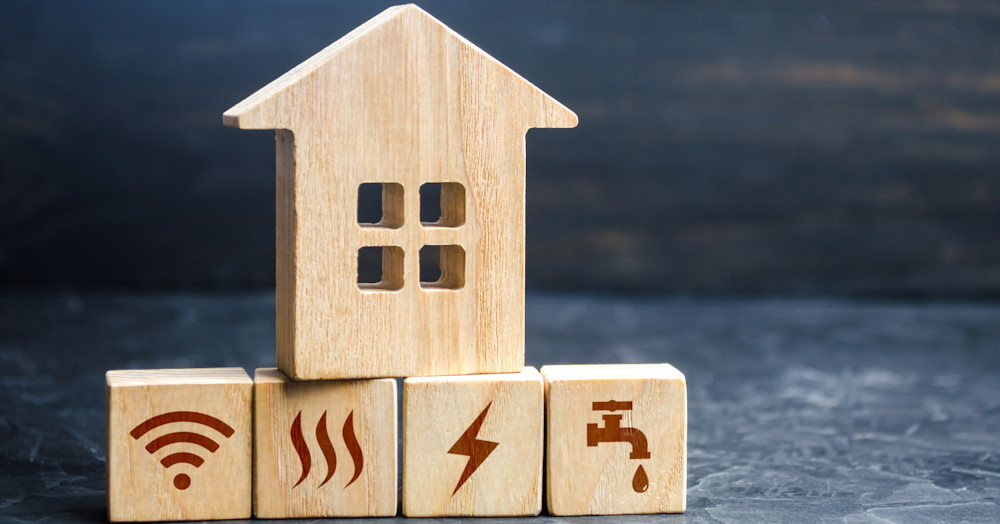
You need to carefully check the terms of your lease to determine which utilities are included and what additional expenses you’ll be liable for. In most instances, the landlord covers standard utilities like gas, electricity and water, but you’ll be expected to pay for telephone services, internet, and cable.
Nonetheless, you’ll need to set up the utilities with a provider of your choice if the landlord or real estate agent has not done this. Most utility providers allow you to do this online or by telephone, so you’ll just need to verify your identity by providing your social security or driver’s licence number, new address, move-in date and payment information. Remember to take meter readings upon moving in to avoid incurring the previous tenant’s bills.
Electricity
Duquesne Light Company serves most of Pittsburgh, providing reliable electric service to the city and surrounding areas. You can set up service online through their customer portal or by calling their customer service line. Payment options include AutoPay from your bank account, online payments using credit/debit cards, digital wallets, automated phone service, mobile app, or traditional mail payments. West Penn Power serves some outlying areas with similar setup and payment options.
Gas
Natural gas service comes from either Columbia Gas of Pennsylvania or Peoples Gas, depending on your specific location in Pittsburgh. The service is piped directly to your property and typically covers both heating and cooking appliances. Most Pittsburgh homes rely heavily on natural gas for heating during the cold winters.
Both companies offer convenient setup processes online or by phone, with payment options including online banking, credit/debit cards, PayPal, Venmo, Amazon Pay, automatic bank transfers, and phone payments.
Water
The Pittsburgh Water and Sewer Authority (PWSA) handles all water and sewerage services for the city. Pittsburgh’s drinking water comes from the Allegheny River and undergoes comprehensive treatment, producing about 70 million gallons daily. The water meets all federal safety standards, and most residents drink it straight from the tap. PWSA has made significant improvements to water quality in recent years, including the addition of orthophosphate to prevent lead contamination from older pipes. You’ll need to contact PWSA directly to establish service at your new address.
Bins and recycling
The City of Pittsburgh provides single-stream recycling to single-family homes, duplexes and small apartment blocks, which allows all recyclable materials to be placed in one bin. Pittsburgh also does regular curbside rubbish collection, with different days for residential rubbish and recyclable materials. You can visit the City of Pittsburgh’s environmental services website to find the schedules for the different areas and suburbs.
Useful links



